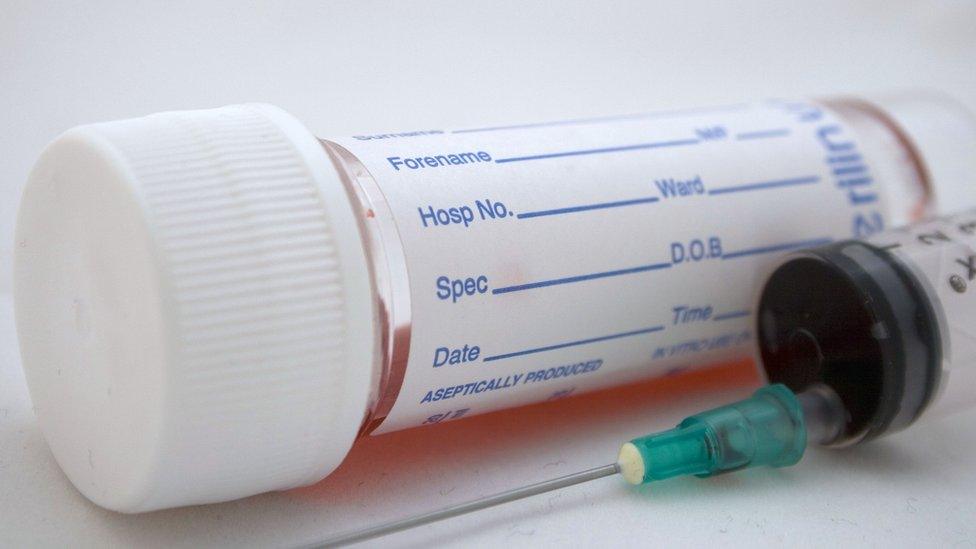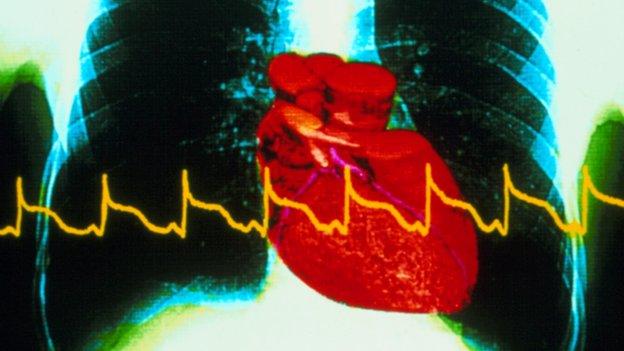Blood test 'surgery survival predictor'
- Published

The blood test for troponin is routine in cases of suspected heart attack
A routine blood test could predict whether a patient is likely to survive after surgery, a new study suggests.
Researchers found patients with lower levels of the protein troponin were less likely to die after an operation.
The test is normally used to diagnose a heart attack, during which the protein is released into the bloodstream.
Dr Matthew Jackson from Middlesbrough's James Cook University Hospital said the test could identify patients who needed extra medication, tests and monitoring.
"Now we need to find out why troponin levels are raised in some patients before surgery, and why these patients are more likely to die, in order to identify treatments that could reduce the risk of death following non-cardiac surgery," he said.
'Improved outcome'
The study, which looked at patients who had not had a heart attack, has been presented to the British Cardiovascular Society conference, external in Manchester.
Blood samples from 993 patients were tested for troponin levels before they had non-cardiac surgery.
A quarter with levels above 50 nanograms per litre (ng/l) died within six months and 37% within a year, the researchers found.
Of those with lower than 17ng/l, just 2.5% died within six months of surgery and 3.7% within a year.
The link is not yet clear but patients with high troponin levels could have underlying inflammation, researchers said.
British Heart Foundation associate medical director Prof Metin Avkiran said if the "underlying causes" could be understood, treatment could be "tailored to improve outcome".
- Published20 December 2016

- Published8 October 2015

- Published21 January 2015
